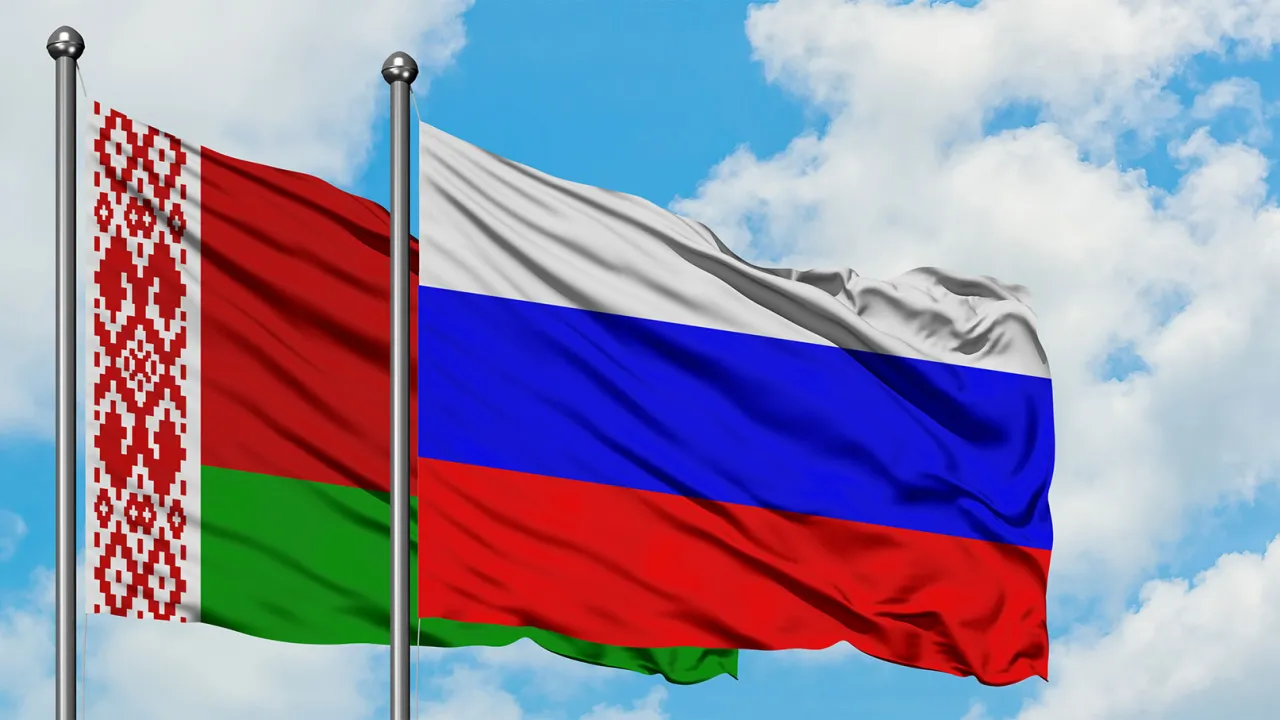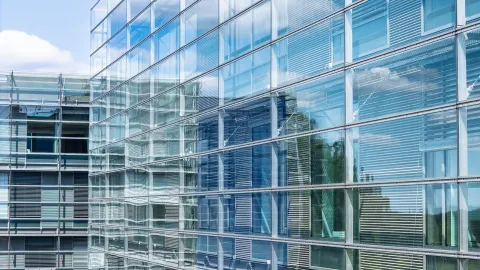Countries and markets 2/2021: Is trade with Russia and Belarus still possible?

Published date
Russia and Belarus have stayed in the headlines throughout the first half of 2021. The meeting between President Putin and President Biden was recently the centre of attention, and recent actions by Belarus have led to new EU sanctions. Finnvera grants on a case-by-case basis export credit guarantees for exports to Russia for corporate and banking risks. For Belarus, however, no new export guarantees are being granted until further notice.
Finnish companies' perspective on Russian trade slightly more positive
Russia is a large market and an important export destination. In terms of Finnvera's political risk liabilities, Russia accounts for the largest country exposure.
According to the Russian trade barometer for May, the outlook for export companies is more positive than it was last autumn. Trade has grown in industry and commerce, particularly for small enterprises, although growth prospects for service companies are still more sluggish. Expectations are business growth are particularly strong among small companies. One problem mentioned, however, was the political situation, which could lead to new sanctions and fluctuations in the exchange rate. The barometer is commissioned by the Finnish-Russian Chamber of Commerce, the Confederation of Finnish Industries, the Central Chamber of Commerce’s East Office of Finnish Industries, and the Federation of Finnish Enterprises.
According to the Barometer, the coronavirus situation has also brought about a surprising and permanent change in trading practices. Personal relationships are important in Russia, but a digital leap has taken place during the pandemic, with trade now being carried out remotely and growth seen in the digitalisation of marketing and sales.
Russia’s economy is stable – no reforms are in sight
Coronavirus has also affected the Russian economy. In early 2020, the GDP of energy-dependent Russia fell by 8 per cent due to the collapse of oil prices and the lockdown measures imposed. The global crisis strongly curtailed export demand. However, the Russian economy finished the year better than expected, with GDP falling only by 3 per cent in 2020.
The restrictions dealt a huge blow to the services sector and SMEs, but these represent a smaller share of the economy than in most developed economies. For the extractive industry, the year was poor, but economic recovery in the second half of the year was aided by state subsidies and by the good momentum in processing industries such as chemicals and wood. Vaccine development and the Sputnik vaccine also played their part.
The coronavirus situation has deteriorated once again, especially in large cities such as Moscow and St. Petersburg. The Russians are wary of vaccinations and do not particularly trust their own Sputnik vaccine. The authorities have pressured employers to try to vaccinate their personnel by threatening lay-offs to those that do not comply. According to the authorities, there will be no return to the lockdown measures and restrictions on mobility seen in spring 2020.
The economic growth forecast for the current year stands at 3 per cent, with lower figures estimated for the coming years. Russia continues to be hampered by economic under-performance, as the economy is dominated by less-than-efficient state-owned enterprises. Despite this, there are still no structural reforms in sight.
Russia's public finances, however, are stable. The International Monetary Fund (IMF) has poured praise on the Russian Ministry of Finance and Central Bank for its economic discipline. Although the budget was in deficit last year, the National Welfare Fund was not used to cover this. Instead, the State issued securities which were mostly purchased by liquid, state-owned companies. The size of the National Welfare Fund has increased to 12 per cent of GDP. The barrel price of oil is defined in the budget, and any excess revenue is transferred to the fund. The aim is to use liquid assets for purposes such as national projects, which include infrastructure, education, and health care, but this has got off to a slow start.
Meanwhile, trends in household income levels have not been positive in recent years. Last year, disposable income decreased by around 5 per cent. The ruble’s exchange rate has deteriorated and no longer correlates with the price of oil. Inflation has increased, reaching an annual rate of 6 per cent in May. In the run-up to the Duma elections in September, price controls have been set for basic goods and one-off social allowances have been granted.
Geopolitics and internal politics at the centre
Russia has been militarily active, not only since 2015 in Syria, but also in the conflict that reignited at the end of last year in Nagorno-Karabakh, where Russia is supporting Armenia and Turkey is supporting Azerbaijan. Another conflict area is eastern Ukraine, where Russia claims that it is not involved. The concentration of Russian forces at the Ukrainian border last spring triggered extensive debate on Russia's intentions. The Russian Ministry for Foreign Affairs has declared the USA and the Czech Republic 'unfriendly countries'.
With the upcoming Duma elections this autumn, the screw has been tightened further. President Putin's supporting party United Russia has been declining in popularity, but it is expected to win the elections due to the absence of alternatives. The opposition has been restricted by declaring opposition candidates to be foreign agents. The anti-corruption foundation of key opposition leader Alexei Navalny has been declared to be an extremist organisation, and those involved with the foundation are not eligible for election. Independent media has been curbed and the curricula for schools and universities have been reformed. Regulation of social media has also tightened in recent months.
Export guarantees possible on a case-by-case basis
Russian trade is currently subject to sanctions, and Finnvera adheres to EU sanctions in its export credit guarantee operations, while also taking US sanctions into account. We grant on a case-by-case basis short, medium and long-term export credit guarantees for trade with Russia against corporate and banking risks.
The sanctions imposed by the EU because of the invasion of the Crimea are still in force. The new sanctions imposed by the US in the spring relate to individuals and companies accused of harassment and cyber attacks during the US elections. In addition, the sanctions also prevent US financial institutions from directly purchasing state-issued securities (in primary markets). Trading in secondary markets is not subject to sanctions.
Belarus – hopefully not a lost opportunity?
Belarus has also been an interesting market for Finnish companies – a country of nine million inhabitants located in the middle of Europe and having a high level of education. The outlook has changed significantly, however, after the fraudulent presidential elections last August, the brutal crushing of peaceful demonstrations and, in May, the forced landing of a Ryanair aircraft in Minsk.
The state-sector is central to the Belarusian economy. The country is dependent on Russia, but has also wanted to maintain relations with the West. Belarus is a member of the Eurasian Economic Union, which also includes Russia, Armenia, Kazakhstan and Kyrgyzstan. Belarus's export structure is unbalanced: Belarus has bought subsidised crude oil from Russia, processed it and then exported to the West. Another key export product is fertilisers, which together with oil account for about 40 per cent of export revenue. The country’s largest export partner are Russia and EU (Russia 42 per cent, EU 21 per cent in 2020). Russia is also by far Belarus’ largest donor, followed by the Eurasian Development Bank and China.
The state union with Russia has been under discussion for years and the two countries agreed on a Treaty on the Creation of a Union State of Russia and Belarus in 1999. President Lukashenko has continued, however, to try to strike a balance between relations to the west and the east. Now the money sources from the West are drying up, which means that Russia's negotiating position has improved. In a recent meeting, President Putin and President Lukashenko are known to have discussed once again the state union, including areas such as common taxation and defence and a common parliament. To President Lukashenko, this would mean a loss of authority, and it would not have the support of the people.
New sanctions against Belarus
At the end of June 2021, the EU imposed new economic sanctions on Belarus. The EU's earlier sanctions were mainly individual sanctions, such as travel bans and asset freezes. The new sanctions apply to the EU's export and import trade with Belarus as well as the financial sector.
The export bans include:
- sale and supply of equipment, technology, software or related services that relate to monitoring of telecommunications or the internet
- sale, supply, transfer or export of dual-use items and technology for military use
- sale, supply, transfer or export to Belarus of products used in the production or manufacture of tobacco products
- extending the export ban previously in force on arms (and other defence equipment) and related equipment and technical assistance, services and financing
The import bans include:
- the purchase, import or transfer of petroleum products from Belarus and the provision of technical assistance or training, financing and the provision of insurance or reinsurance products relating to the bans
- purchase and import of potassium chloride (‘potash’)
Prohibitions on financial and capital markets
- Belarus is subject to restrictions on access to EU capital markets. This includes the country's government, public bodies, companies or agencies, and certain publicly owned or publicly controlled financial institutions and other institutions. The provision of insurance and reinsurance to the Government of Belarus, its public bodies, companies or agencies is also prohibited
- Certain prohibitions are in place for the operations of the European Investment Bank in Belarus
- The EU is restricting the activities of international development banks in Belarus in cases where EU Member States are members of these banks.
Export guarantees cannot be granted until further notice
Until further notice is given, Finnvera is not granting export credit guarantees for trade with Belarus. Although EU sanctions apply only to state-owned companies, the deteriorating economic outlook of Belarus is also affecting private companies.
Authors and more information about the topic:
Anu-Leena Koskelainen, Team Leader, Country risk management, Finnvera, tel. +358 29,460 2819, [email protected]
Read more about Finnvera's counry classification



